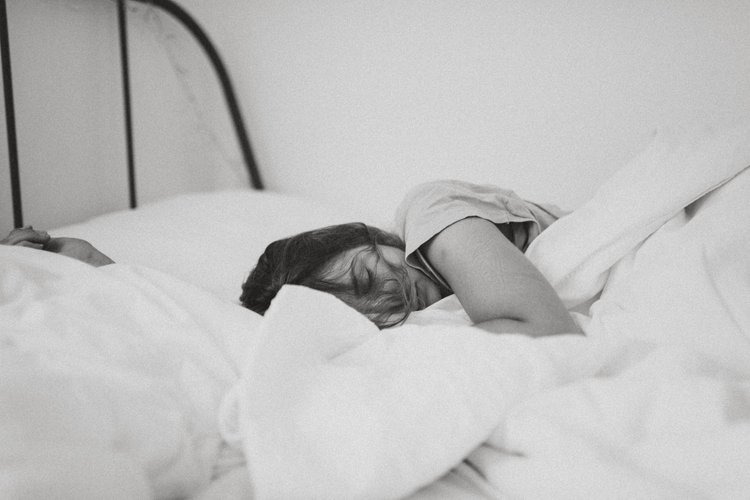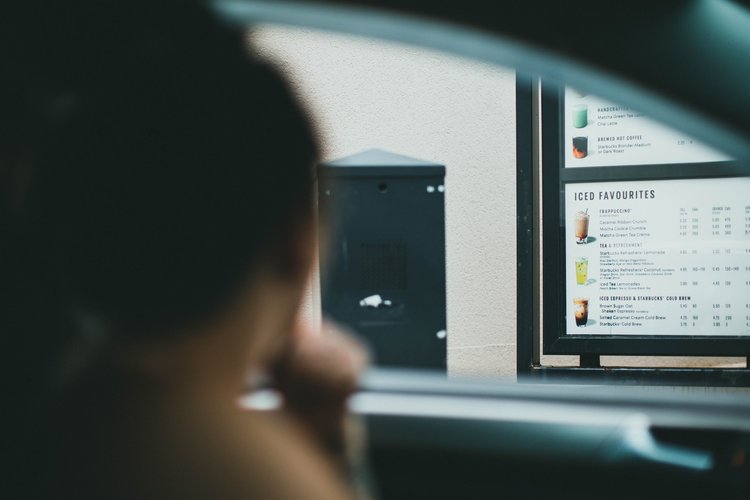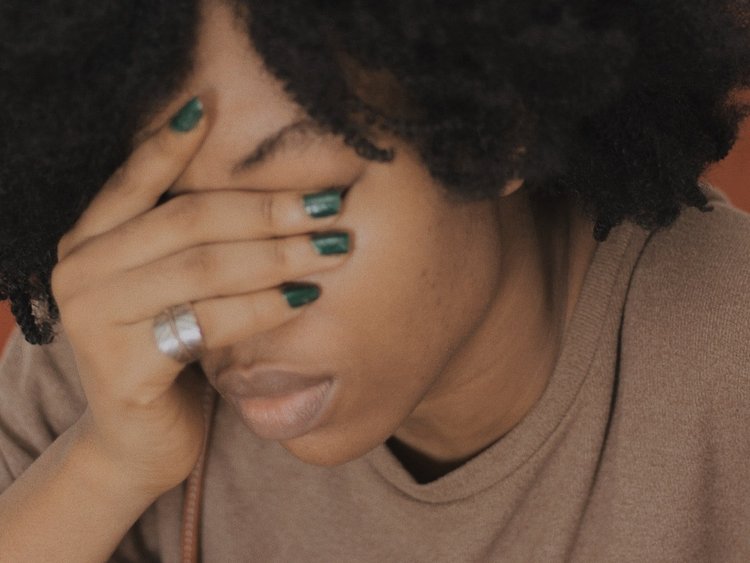Here’s the paradox: It’s about food, but it’s also not about food.
Learn more about the different types of hunger, how to differentiate them, and how to satisfy them.
Heal in Our Tranquil Compulsive Overeating Treatment Center in Maui
Our trusted compulsive overeating treatment center provides effective treatment for patients who struggle with out-of-control eating patterns.
‘Ai Pono Hawaii has more than three decades of experience in providing professional help as a compulsive overeating treatment center. We offer individualized treatment plans for patients whose lives have been affected by the various symptoms, signs, and effects of compulsive overeating.
Although often confused with binge eating, compulsive overeating is a distinct condition in and of itself. We believe that it’s important to know the distinction between these two conditions as well as other related eating disorders in order to accurately diagnose a patient and design the right treatment plan.
With over 35 years of experience as an eating disorder and compulsive overeating treatment center, ‘Ai Pono Hawaii can help you (or your loved one) manage the signs, symptoms, and effects of compulsive overeating; reclaim control over your eating behaviors; gain better physical and mental health; and increase your overall satisfaction in life.
Want to learn more? Talk with a professional today.
What is Compulsive Overeating?
Compulsive overeating is an umbrella term describing eating behaviors that are characterized by loss of control. People who struggle with compulsive overeating eat excessive amounts of food—but usually not because they feel hungry.
In our compulsive overeating treatment center, we acknowledge that there are many reasons behind compulsive eating behaviors. For example, you may compulsively overeat when you feel bored, or you may overeat “mindlessly,” for example, whenever you’re watching television.
Many patients who suffer from compulsive overeating also have a negative body image as well or low self-esteem or resort to compulsive overeating as a means of coping with their underlying emotional issues, such as anxiety, depression, or trauma-induced distress. They compulsively overeat because of their desire to feel good.
At ‘Ai Pono Hawaii we acknowledge that using food to get to peace or regulate when things get chaotic is a natural part of being human. However, it becomes problematic when food is the only way we know to regulate.
When we rely on food behaviors like overeating, we may actually lose our sense of control, then feel guilty and ashamed for what we consider a sign of “poor willpower.” With these negative feelings attached, the cycle of overeating will tend to repeat itself.
Common Causes of Compulsive Overeating
As with all eating disorders, compulsive overeating results from a complex interaction of biological, psychological, environmental, and cultural factors.
On a biological level, your genetics, nutritional history, and hormone levels can all influence whether or not you may become a compulsive overeater. Having Type 1 diabetes, a history of ‘dieting’ to lose weight, or a close relative who has an eating disorder or other mental disorder are among other biological risk factors.
In terms of psychological factors, you may have certain traits such as perfectionism. You might also have rigid ways of thinking, and/or suffer from a mental health disorder (such as anxiety). All of those are associated with disordered eating behaviors, including compulsive overeating.
Lastly, certain environmental or sociocultural factors can increase your likelihood of engaging in compulsive overeating. For instance, being exposed to an environment where people devote a lot of time and energy to their food, weight, or dieting can lead to behaviors that support compulsive overeating. Having experienced a traumatic event, abuse or neglect, bullying or teasing, weight-related stigma, or inadequate social support can also increase your likelihood of compulsive overeating.
Whichever of these you may have experienced (or perhaps continue to battle), the good news is that you no longer have to face these issues on your own. Our compulsive overeating treatment center has a highly experienced and professional team of experts who can help treat your compulsion to overeat.
How Do We Recognize Compulsive Overeating?
Everyone has eaten too much at least once in their life. Overeating every now and then is normal—particularly during special occasions like birthdays, holidays, or other celebrations.
We know that eating or overeating due to emotional reasons is also very common, even among people who have no eating disorder. This makes complete sense because food has served special and essential purposes ever since we were born: it provides us with the energy and nourishment we need, and even serves as a reward.
So how do we know if a person is compulsively overeating?
Here at ‘Ai Pono Hawaii’s compulsive overeating treatment center, we observed that patients who struggle with compulsive overeating are those who depend on food as their exclusive means of dealing with negative emotions, coping with everyday stressors, or relieving a feeling of emptiness.
This feeling can be reinforced when you practice negative self-talk, which builds and further supports your negative self-perception. As a result, you may constantly dwell on thoughts about food. Consequently, you may feel ashamed, guilty, and even depressed after each time that you overindulge in food.
One metaphor our Founding Clinical Director, Dr. Anita Johnston often uses talks about two “tanks”: Tank A is physical hunger); and Tank B is emotional hunger. Many people perceive that they have only have one tank. They will fill it completely with either food or emotion – but have not satisfied either hunger completely, or have overfilled one. At ‘Ai Pono, we help patients to differentiate between different hungers and needs, and by doing so, we can meet emotional hungers appropriately and without using food.
If you struggle with compulsive overeating, you may experience a number of signs and symptoms. The most common sign is when you consume unusually large amounts of food (relative to your physical needs) on a regular basis. You may also prefer to eat alone because you’re ashamed of showing the amount of food you consume to other people.
You are likely to eat impulsively or in response to emotions rather than only during specific mealtimes or when you feel real hunger. You may continue eating even if you already feel satiated or until your stomach feels uncomfortably full. You may eat rapidly, or you may eat slowly yet consistently throughout the day and even night (this is called “grazing”).
Keep in mind that one key feature of compulsive overeating is that it makes people feel guilt, depression, and/or disgust after their overconsumption of food. They may likewise exhibit compulsive behaviors related to food, such as hoarding food, keeping secret food stashes in their room or car, and eating food that’s already in the garbage. Some will even steal food or establish schedules or engage in rituals in regards to their binge eating.
Here are some common signs, symptoms, and effects of compulsive overeating:

physical signs:
Weight fluctuations (particularly, gaining weight without deliberate efforts to do so)
Low energy
High blood pressure
Heart disease
Elevated cholesterol levels
Stroke
Arthritis
Kidney disease
Sleep apnea
Bone weakness or deterioration
Decrease (or total loss) of sex drive
Fatigue
Behavioral signs:
Consumption of large amounts of food within a short timeframe
Rapid eating pace
Feeling out of control after consuming specific trigger foods
Having different eating habits when alone compared to when with other people
Overeating despite feeling of fullness and/or related health conditions
Feelings of pleasure and comfort whenever eating
Inability to follow medically indicated dietary restrictions
Feeling irritable or depressed whenever food is not available
Suffering from anxiety or panic attacks whenever food is not available
Preferring to be alone or isolated, and avoidance of social events
Experiencing unexplained mood swings


Psychological signs:
Anxiety or panic attacks
Depression
Mood disorders
Behaviors that are linked to Obsessive Compulsive Disorder, Borderline Personality Disorder, Bipolar Disorder, Generalized Anxiety Disorder, and Panic disorder, and other mental health conditions
Thoughts of self-harm or suicide
Compulsive Overeating is Not The Same as Binge Eating
Although binge eating is quite common among compulsive overeaters, you need to be aware that these are different conditions and it is incorrect to use the two terms interchangeably.
People who suffer from Binge Eating Disorder (which is the most common eating disorder in the United States) eat a lot of food in just one sitting. On the other hand, people who compulsively overeat might not eat a lot in a single time but, instead, keep ‘grazing’ or eating snacks throughout the day.
Compulsive overeating describes an eating disorder behavior, but it is not a disorder in itself. People who compulsively overeat are sometimes diagnosed with with bulimia nervosa (if they engage in purging after overeating), or, Binge Eating Disorder (without purging). Another possible diagnosis that compulsive overeating behavior is associated with is Other Specified Feeding or Eating Disorders (OSFED).
In other words, if you eat too much despite not feeling hungry, yet do not engage in compensatory behaviors like vomiting, abusing laxatives or diuretics, or over-exercising, you’re compulsively overeating and may or may not meet criteria for Binge Eating Disorder.
It should be noted that while compulsive overeating often results in weight gain, people of all body shapes and weights can struggle with compulsive overeating.
Throughout our years of serving as a compulsive overeating treatment center, we discovered that many patients with out-of-control eating behaviors suffer from another health condition, such as hypertension, heart disease, diabetes, depression, and anxiety. Although having a comorbidity makes the treatment a bit more complicated, our eating disorder treatment center has extensive experience in treating patients with such cases.
Debunking Other Misconceptions About Compulsive Overeating
There are other popular yet incorrect assumptions regarding compulsive overeating. The truth is that:
Laziness or lack of willpower has nothing to do with it
As discussed earlier, compulsive overeating is not simply due to a lack of control or effort. Rather, it is an intricate interplay of a variety of factors. People who suffer from eating disorders need the guidance and support of trained professionals in learning to manage their disordered eating patterns. Here in ‘Ai Pono Hawaii, our expert team is composed of medical, psychological, and nutrition specialists who collaborate in treating various eating disorders.
People don’t have 100% control over their weight and food consumption.
Some causes of compulsive overeating are beyond your control. Compulsive overeating is a complex issue with a variety of influences and potential barriers including: access to support; access to food or past issues of food scarcity; and more.
Begin Your Recovery in our Compulsive Overeating Treatment Center
For more than 35 years now, ‘Ai Pono Hawaii has helped hundreds of patients transform their eating patterns and their lives. It is our honor to offer the most comprehensive and longest-running eating disorder treatment program in the State of Hawaii.
We provide holistic and comprehensive treatment for patients who struggle with compulsive overeating. Our innovative approach in healing patients combines psychotherapy, medical care, nutrition therapy, and other diverse therapeutic modalities in order to help patients manage and resolve their compulsion to overeat.
Our multidisciplinary team is composed of highly experienced therapists, doctors, nutritionists, dietitians, and other professionals who specialize in treating patients with a wide variety of eating disorders as well as related conditions, including compulsive overeating.
We develop and deliver individualized treatment plans to begin every patient’s life-changing journey to healing. No two treatment plans are alike because each one is customized for the unique needs and objectives of each patient. However, all of our treatment plans share common characteristics, such as the use of evidence-based therapies and proven interventions within a tranquil, supportive, and safe environment.
Our treatment plans for compulsive overeating typically include individual, family, group, and experiential therapies. They often incorporate Cognitive Behavioral Therapy (CBT), Dialectical Behavior Therapy (DBT), Acceptance and Commitment Therapy (ACT), motivational interviewing, and other forms of therapy. We also provide nutrition therapy and 24/7 medical support.
In the course of receiving your treatment here in ‘Ai Pono Hawaii, you will learn to cope with emotional pain and stressors without depending on food, get rid of black-and-white (or all-or-nothing) thinking, transform negative views of yourself and your body into neutral or positive ones, and normalize your eating patterns. You will become more comfortable with celebrating your accomplishments, accepting praise, and showing yourself compassion.
By receiving treatment in our compulsive overeating treatment center, you will learn proven techniques to manage your symptoms to stop your disordered eating patterns. Our specialists will teach you how to identify what is truly driving you towards compulsive overeating and introduce more appropriate and effective coping skills and techniques so that you will no longer need to rely on food or eating to “satisfy” your needs.
We will challenge you to examine your unpleasant thoughts about your body and your emotions. You will also find yourself in the company of sympathetic and supportive people who are also struggling with compulsive overeating or related eating disorders.
Throughout your recovery journey, we will guide you in developing positive, empowering self-talk as well as reconnecting to your authentic self. In the end, you will be able to redefine your relationship with food and the act of eating. You will likewise learn to adopt more balanced eating habits that can benefit you for the rest of your life as well as prevent relapse.
Begin Your Recovery in our Compulsive Overeating Treatment Center
Our supportive staff members are equipped with the knowledge, skills, and compassion to help you prevent that downward spiral and put an end to the vicious cycle of compulsive overeating.
